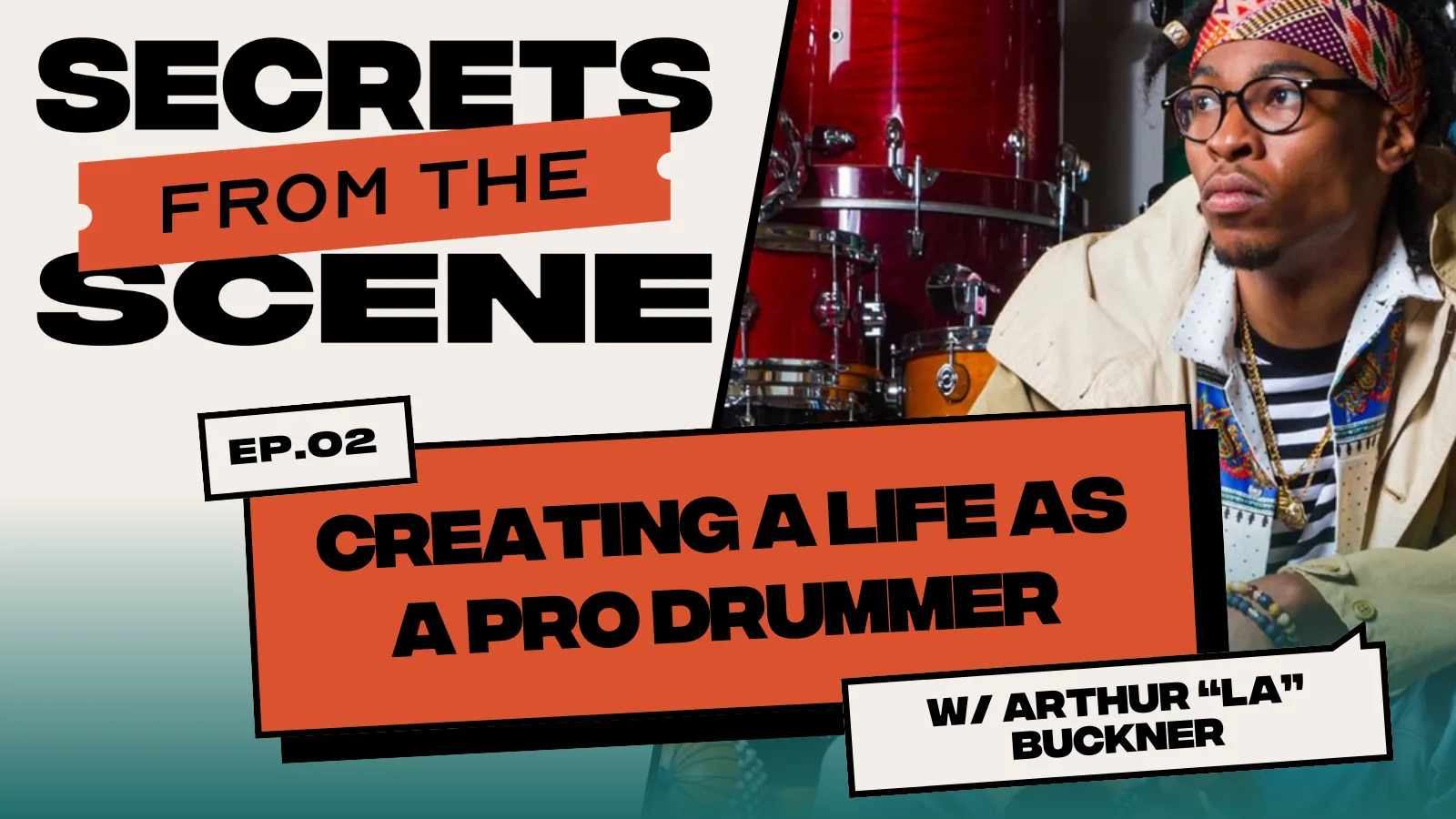Show Notes
Arthur “L.A.” Buckner is a performing musician, teaching artist, and producer from the Northside of Minneapolis. He holds a master’s degree in Percussion Performance from McNally Smith College of Music. Currently, LA is playing with his band BiG HOMiE, teaching drums, and also serves as co-host for the two-time Webby award-winning PBS music education YouTube series Sound Field, a video project exploring the music theory, production, history, and culture behind our favorite songs and musical styles. Back in 2020, LA took iTunes by storm with the release of his project, also titled BiG HOMiE, which reached #1 on the iTunes Jazz charts.
On this episode, LA and I dive deep into his artistic journey, from learning and playing music through his church to getting his degree, playing in tons of local bands, finding his own authentic voice, and how being a teacher and mentor accompanies and supports all of it.
You'll get stories and insights from LA on:
- Being a professional drummer and an educator
- The role of community and networking
- The importance of mentors
- How personal relationships are everything
- Creating content and hosting a PBS series
- Finding your authentic voice
- Writing and arranging songs as a drummer
- Learning from everyone, including your students
- The journey through our music scene
- and much more
watch now on YouTube:
Episode Links and Mentions
🌐 Massamba Diop (Tama drums in Black Panther)
🌐 Max Roach (drummer)
🌐 "The Minneapolis Sound" (Prince, Morris Day, The Time, Jimmy Jam & Terry Lewis, Jelly Bean Johnson)
🌐 Herbie Hancock's book: Possibilites
🌐 David Smith (Instagram) Keys
🌐 David Feily (Instagram) Guitar
🌐 Ethan Yeshaya (Instagram) Bass
🌐 Jovon Williams (Instagram) Sax
🌐 Adam Meckler (Instagram) Teacher (Trumpet)
🌐 Aaron Hedenstrom (Instagram) Teacher (Sax)
🌐 SPCPA (Saint Paul Conservatory for Performing Arts)
🌐 Chris Osgood (The Suicide Commandos)
🌐 Terrace Martin (Instagram) producer
🌐 Toussaint Morrison (Instagram)
🌐 Linda Diaz (Instagram)
Connect with the Guest
🔗 Connect with LA on Instagram
🔗 Check out the MSP Magazine feature on him
🔗 Watch a Sound Field episode!
Featured Song
Connect with Me
Give Feedback
📬 Send me a message: stephen@secretsfromthescene.com
💬 Suggest a guest or topic: podcast@secretsfromthescene.com
🎙️ Brought to you by:
--------------------------------
Thank You
This podcast is made possible by the hard work, expertise, and commitment of my team:
Max Greene and Joey Biehn. I'm forever grateful.
--------------------------------
Theme Music: "Thankful" Courtesy of LUEDVIG

